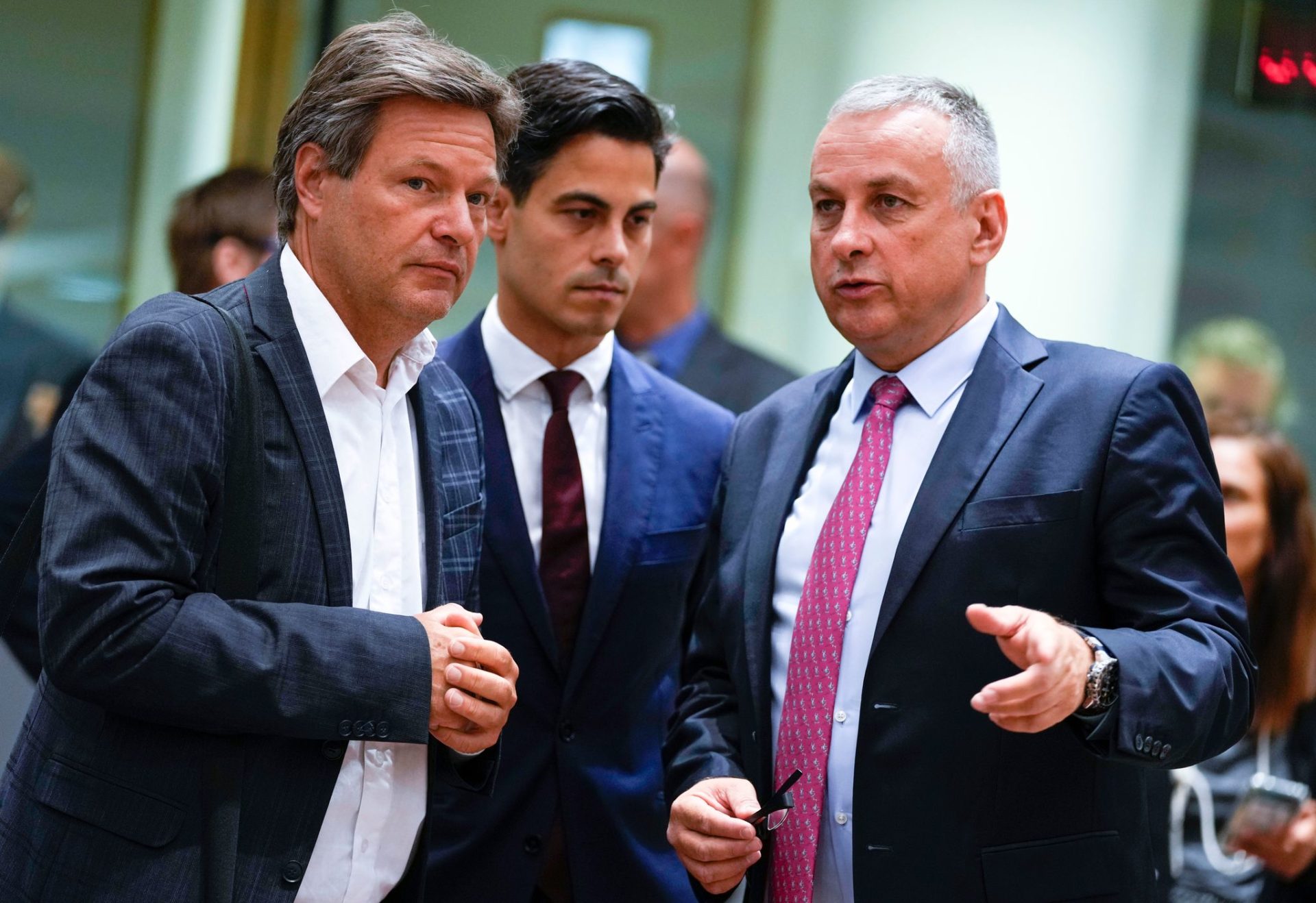 Have the article read by OpenAI (Beta). Please note that AI translations may take some time to process.
Have the article read by OpenAI (Beta). Please note that AI translations may take some time to process.On Tuesday, the EU’s energy ministers officially signed a plan to save gas, with Hungary being the only opponent. The plan provides for a voluntary 15 percent reduction in gas consumption by the member states between August 1 2022 and March 31 2023, as well as a mechanism to trigger a unionwide alert to implement binding savings targets in the event of widespread gas shortages.
The agreement sees the stringent terms of a first draft by the EU Commission considerably watered down. The plan provides for more opt-outs from binding measures, and the threshold for the introduction of binding savings targets has been raised. Derogations can be requested by those who are able to demonstrate their capacity to export or that their infrastructure is being used to redirect gas to other member states. Another exemption may be granted to states that have exceeded their storage targets.
An EU-wide alert on low gas supplies can be declared after a proposal from the commission receives backing from the 27 EU member states, or if at least five EU member states raise the alarm. However, the legal text of the plan stipulates that only theCouncil of the European Union, which represents the member states, may enforce binding saving targets, and not the Commission, as originally proposed.
The gas emergency plan still needs to be officially confirmed in writing. The Czech Presidency said on Tuesday that this will be done in the coming days.
A plan tailor-made for Germany?
From Rome to Warsaw (98 percent of storage capacity utilized), the widespread perception is that the plan is tailor-made for Germany, which depends heavily on Russian gas. Critics say that Berlin has failed to diversify its energy supply and has a lower level of gas storage capacities utilized (65 percent) than most other EU countries. Germany is expected to reduce its demand by more than 10.3 billion cubic meters. German Economic Minister Robert Habeck praised the agreement on the gas plan as a strong answer to “all haters and all despisers”, which will prove reports that the EU is divided wrong.

Europe’s largest manufacturing countries, Germany and Italy, both have a high demand for gas. According to the initial EU Commission’s plan, Italy should have reduced its gas consumption by 8.3 billion cubic meters. In order to reduce its dependence on Russian gas, Italy has invested heavily into diversifying its energy supply. Rome is able to demonstrate its capacity to export and its infrastructure is being used to redirect gas to other member states. Since Italy has already met 70 percent of its storage targets, the country expects to get an exemption from the gas emergency plan, which will allow it to reduce gas savings from the initial 15 percent to 7 percent.
Opt-outs for the Iberian Peninsula
Together with Portugal, Poland and other EU members, Spain was one of the countries that had vigorously opposed an initial proposal by the European Commission.
“Unlike other countries, we Spaniards have not lived beyond our means in terms of energy consumption.”
Spanish Minister of Environmental Protection Teresa Ribera said.
Both, Spain and Portugal, were granted opt-outs from binding measures to save gas as part of measures to exempt member states with limited overland connections to the rest of the union. Spain has a well-established national LNG structure, which enables it to transfer gas to other countries. Spain praised the compromise and said it will reduce its consumption by 7 to 8 percent in case of an emergency – but would do so voluntarily, not under orders from Brussels.
Exemptions for islands and Baltic countries
Ireland, Malta and Cyprus will be fully exempt as they are not at all connected to the European grid. Although they questioned why they should participate in the reduction effort at all, even with minimal percentages, the first two confirmed that they will do everything in their power to meet the target.
Another exemption applies to the Baltic countries, which are still connected to Russia’s electricity grid: If Moscow were to “cut off the power” for Estonia, Lithuania, and Latvia, the three countries would be forced to use gas to stabilize their electricity supply and could not afford to save on consumption.
Slovenia and EU Commission praise solidarity despite exemptions
According to the Slovenian Infrastructure Minister Bojan Kumer, EU member states have made a very clear commitment to do more on a voluntary basis and express solidarity. Slovenia is very well connected with its neighboring countries and, due to its small size, has a very low gas consumption. However, it is of great importance to Slovenia that this does not result in the country’s economy becoming less committed to reducing gas consumption.
The risk that so many exemptions prevent the union from saving enough gas does not detract from the plan, EU Energy Commissioner Kadri Simson said.
EU solidarity “works best when we recognize that the circumstances of the member states vary widely,”
Kadri Simoson said, glossing over concerns.
Open Balkans Initiative
The energy crisis has not spared the Western Balkans. To prevent any future problems, the countries are taking steps together in the Open Balkans initiative, a platform of cooperation between Albania, North Macedonia and Serbia.
Serbia announced it has started building a gas interconnection with North Macedonia, and Serbian Energy Minister Zorana Mihajlovic expressed willingness to do the same with Albania, where an LNG terminal is under construction. Serbia said it wants to become a transit country for the region, with the aim to build connections with North Macedonia, Bosnia and Herzegovina, Croatia and Romania.
This article is published Fridays. The content is based on news by agencies participating in the enr.
